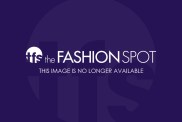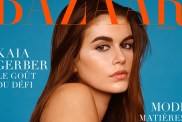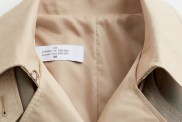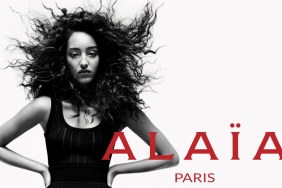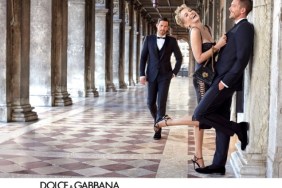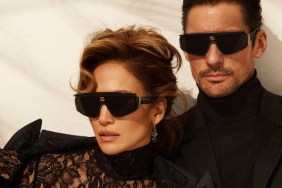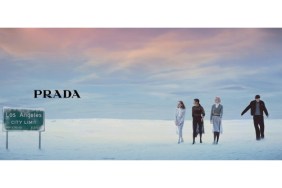With a career that has taken her from Tel Aviv to New York and now to Zurich, Keren Eldad has spend over a decade working in the luxury fashion sector. Her background includes being the fashion advertising director at the Los Angeles Times and reporting for some of Israel’s leading publications. Today Eldad is the brand publisher of IWC – Watch International. What exactly is a brand publisher and what have years of interviewing celebrities and networking with bigwig fashion folks taught Eldad? We found out.
The Fashion Spot: Did you always have an interest in fashion?
Keren Eldad: YES. I was hooked on DYNASTY, and an Elsa Klensch fan at the age of 10. I had no idea what she was going on about most of the time, but the clothes absolutely fascinated me – and that statement applies to both Ms. Klensch and Ms. Collins.
tFS: You spent years working as a fashion and luxury journalist and interviewed many celebrities along the way. How did that all come about?
KE: Well, in my defense, I started out trying for a hard-hitting career in journalism. In my early years, I joined the newsroom at Israel’s biggest newspaper, Yediot Ahronot, as a producer — fancying myself the next Christiane Amanpour. Sadly, it turns out the news in Israel is both depressing and un-glamorous. Thus, I found a way to chat up Israel’s answer to Ryan Seacrest — a man named Guy Pines — pronounced “penis”. No, really, and he offered me a job as an on-air celebrity news correspondent. This turned out to be a totally non-depressing and ultra glamorous job (which often included free meals) and I was hooked. Later, I got an internship at Elle and migrated happily into the world I love most: fashion. Talk about glamorous. I have never looked back.
tFS: What are some important things to remember when interviewing a celebrity?
KE: That there is a PR person next to you who will attack if you get off track with unapproved questions. I had one heck of an argument with a certain rep for Mr. Matt Damon. A story for next time.
tFS: What are some important things to remember when dressing for on-camera work?
KE: That you need to wear more makeup than you think and don’t even dream of not having your hair professionally done, and that color photographs better than any neutral. Also, black pants or a black skirt will make your bottom half invisible to cameras. This is often a good thing.
tFS: You spent a good chunk of your career as the fashion advertising director at the Los Angeles Times and at Surface, and before that, doing luxury advertising for Cosmo. How did you land in advertising?
KE: After a couple of years attempting to be Amanpour with a twist, I did my master’s in Media and Communications and became very heavily influenced by marketing philosophies. The truth was that being around the Elle editors didn’t help much — I realized that what I was being taught was spot-on: editorial in the fashion and luxury realm is very heavily influenced by both PR and advertising dollars. I figured I wanted to be on what I considered the more honest side. It turned out to also be much better paid, more creative, and great fun.

tFS: What was day-to-day life like working in fashion advertising? What are some of the glamorous and not-so-glamorous things we might be surprised about?
KE: My day-to-day life consists, in advertising, of meetings with clients. An average of three per day. This is many times very glamorous, as business lunches in the city, meetings held at the Dolce & Gabbana showroom, and networking at fashion events, especially when the giants of the industry are there, all are not too shabby. Less glamorous is the grind — the networking never stops, proposals need to be written each and every week, and negotiations can be quite brutal. In all of it, passion and enthusiasm make a huge difference. I always said, I can’t sell anyone yogurt. I can sell stuff I really, really love. When you love the industry and its players as much as I do, reading WWD in the morning is as much a pleasure as it is to badger the CMO of Armani about their next campaign’s goals.
tFS: Can you tell us a little bit about what you do as a brand publisher? How has your background in journalism helped you in your current position?
KE: A couple of years ago, I moved to Zurich. This necessitated a bit of a reimagination of my career. I’ve always wanted to try the client side and it so happened that IWC Schaffhausen, one of my favorite luxury brands, was looking for an in-house marketer. As brand publisher, I basically oversee the creation of all editorial content for IWC — parlaying the stories of the brand, and the personalities that are intrinsically bound to them.
In our editorial portfolio are Watch International Magazine, an award-winning corporate publication, IWC.com, which just won a WEBBY, and multiple social media channels that keep us really connected to IWC’s fans. It’s a lot of scheduling and planning, but in the end I am really proud of the last year’s worth of content at IWC.
tFS: How important is it that brands become content producers?
KE: Today, there is no question that all brands have to function as publishers due primarily to social media. Custom publishing, or publishing for brand purposes, is of course nothing new. P&G, for example, “invented” the radio and TV soap opera to serve a marketing purpose. What brands, from Burberry to Cartier, and also IWC, are now doing is packaging content in a way that makes it easy and exciting for the target audience to be drawn into the world around their products. That content should be compelling and findable and will turn regular fans into evangelists — if executed well. We all aim to be smart and entertaining and to really connect our audiences with their investment. In the luxury world, with extremely high priced products that a client will think long and hard about before purchasing, this is crucial.

tFS: What are some of the biggest challenges you face in coming up with original content that doesn’t feel too “advertise-y”?
KE: I have the same problems any editor does in my role: ideas are hard to come by. I’m pretty lucky, for two reasons: 1. I read a lot, and I am thus easily inspired and constantly able to come up with new subjects. 2. We have the greatest marketing team in the world at IWC, a team that gives me a broad and exciting platform to jump from, from the likes of our Top Gun Pilot’s Watches focus of 2012, to the wide range of celebrity friends of the brand. There’s always something that will fill those pages.
tFS: Is there an added challenge because you’re dealing with a luxury market?
KE: Yes, that competition is fierce. Other luxury brands never rest, so neither can we.
tFS: Are you on Twitter? Facebook? Pinterest? Is it imperative that anyone hoping to get into a field similar to yours be on these social media platforms?
KE: Absolutely and absolutely.
tFS: You’ve worked in Tel Aviv, London, New York, and now you’re in Zurich. What are some of the differences from place to place?
KE: Too many to mention, really — and always to do with culture rather than with pace. I will say, though, that in each city I have met immensely talented, hard-working, and creative people. These never cease to delight me. To anyone reading this interview, if you get the chance to live and work somewhere else in the world, I cannot recommend it highly enough.
tFS: You’re a regular at the likes of Soho House and at Supper Club events, how instrumental is being in those places for networking/business purposes or do you go for more social reasons?
KE: I happen to be a pathologically social person and would have joined these clubs anyhow. But I must say both, and others, are terrific for my job. Having a Soho House to work out of and to hold meetings in most major cities is terrific and the Supper Club has both introduced me to incredible influencers and given me the chance to bring my top clients into the scene. It’s all about opportunities, and clubs like these expand ours.
